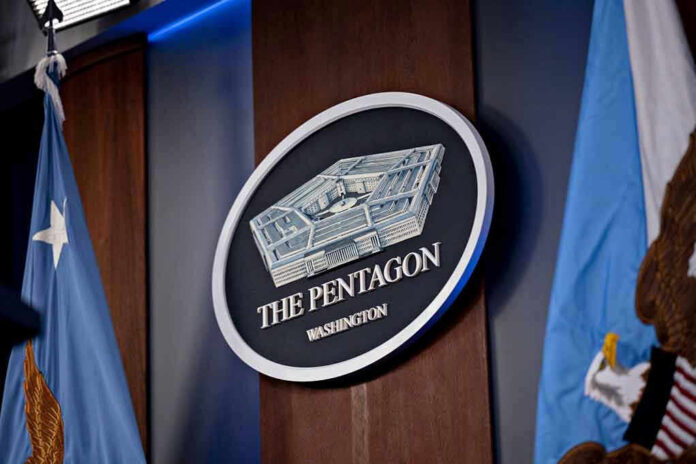The Pentagon’s new Secretary of Defense is scrapping controversial diversity, equity, and inclusion initiatives, sparking a seismic shift in military culture.
At a Glance
- Pete Hegseth confirmed as Secretary of Defense after contentious Senate vote.
- Major rollback of DEI and politically correct initiatives in the military.
- Focus shifts back to traditional warfighting priorities.
- Potentially divisive impact on military personnel and culture.
A New Era for the Pentagon
In a move that has sent shockwaves through Washington and beyond, Pete Hegseth has been confirmed as the Secretary of Defense under President Trump. This change marks the beginning of a new era for the Pentagon, as Hegseth wastes no time dismantling the diversity, equity, and inclusion (DEI) programs that took root during the previous administration. The confirmation came after a contentious Senate vote on January 24, 2025, where Vice President JD Vance was called upon to break a 50-50 tie. The result? A clear signal that the Trump administration is serious about its promise to purge “woke” policies from the military.
Hegseth made no secret of his intentions during his confirmation hearings. He emphasized that the focus of the Department of Defense should be on traditional warfighting priorities, not social experiments. For many conservatives, this is a long-overdue correction. For others, it raises concerns about the potential impacts on inclusivity and unit cohesion within the ranks. Regardless of which side of the aisle you find yourself on, one thing is certain—the landscape of the U.S. military is undergoing a significant transformation.
Policy Changes and Their Implications
The immediate aftermath of Hegseth’s confirmation saw the swift dismantling of DEI initiatives within the Pentagon. Offices and positions dedicated to these programs are being disbanded or repurposed. Training requirements on unconscious bias, gender identity, and racial equity, which were once mandatory, are being rescinded. The new general and flag officer nominations reflect a renewed focus on operational experience over diversity benchmarks. Hegseth’s message is clear: “Distractions such as DEI, social justice, and politically correct stuff are gone,” as he puts it.
This rollback represents a dramatic shift in military policy, one likely to elicit mixed reactions among service members. Some will welcome the change as a return to core military values, while others might feel alienated by the absence of programs that supported inclusivity and representation. The potential for legal challenges and pushback from advocacy groups remains a real possibility, as does increased polarization over the role of social issues in national defense.
Broader Impacts and Reactions
Hegseth’s actions are not happening in a vacuum. The ripple effects of these policy changes could extend beyond the Department of Defense, influencing other federal agencies to reconsider their DEI programs. Defense contractors and partners may also need to align their internal policies with the new DoD priorities. This could lead to economic shifts as budgets are reallocated away from DEI offices and training.
On a social and political level, this move could further polarize public opinion. Conservative and traditionalist factions within the military and political spheres are likely to feel empowered by Hegseth’s actions. Meanwhile, minority service members and civilian employees who benefited from DEI initiatives might feel marginalized. The debate over the role and value of diversity in the military is far from settled, and this latest development is sure to keep the conversation going.
Sources:











